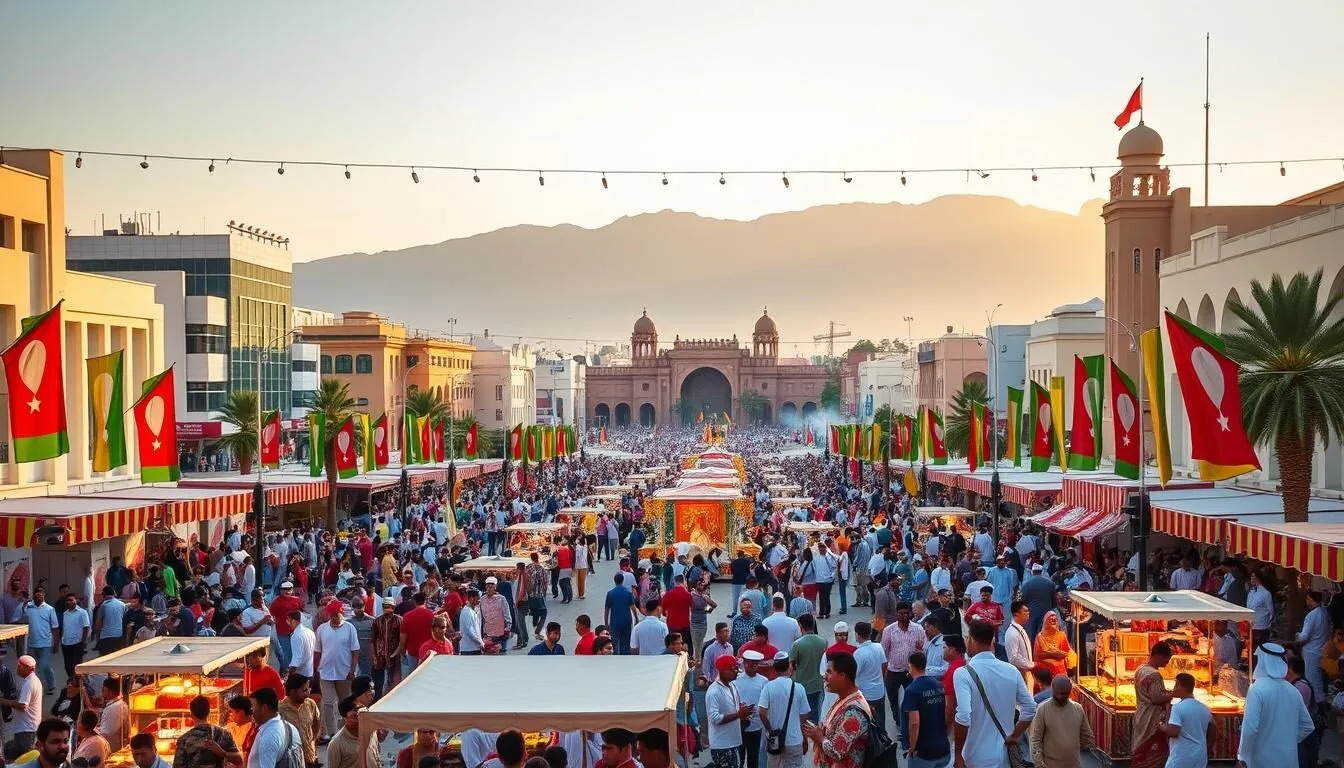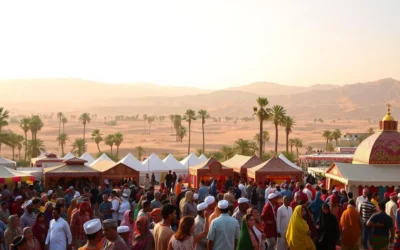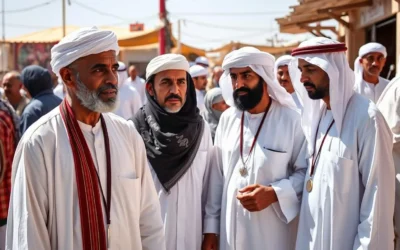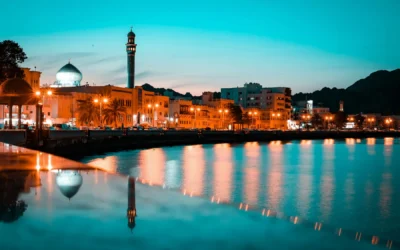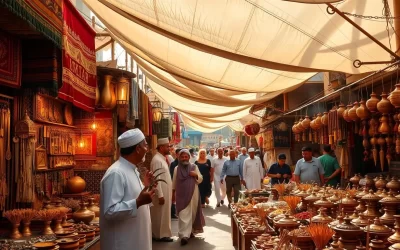✓ Accommodations ✓ Flights ✓ Rental Cars ✓ Tours & Activities
You are about to embark on a journey to a land where ancient traditions and modern celebrations blend seamlessly. Muscat, the capital city of Oman, is a hub of vibrant festivals and events that showcase the country’s rich heritage.
Imagine being part of the colorful celebrations that fill the air with traditional music and the aroma of local cuisine. The performances you’ll witness are a testament to Oman’s cultural evolution, preserved through generations.
As you plan your visit, timing it around these festivals can transform your trip into an immersive cultural adventure, allowing you to experience the warm hospitality of the Omani people firsthand.
Discovering Oman’s Cultural Celebrations
As you explore the rich cultural heritage of Oman, you’ll discover a world of vibrant festivals that showcase the country’s traditions and values. Each festival, big or small, reflects Oman’s deep-rooted values and creativity, offering a unique experience for visitors.
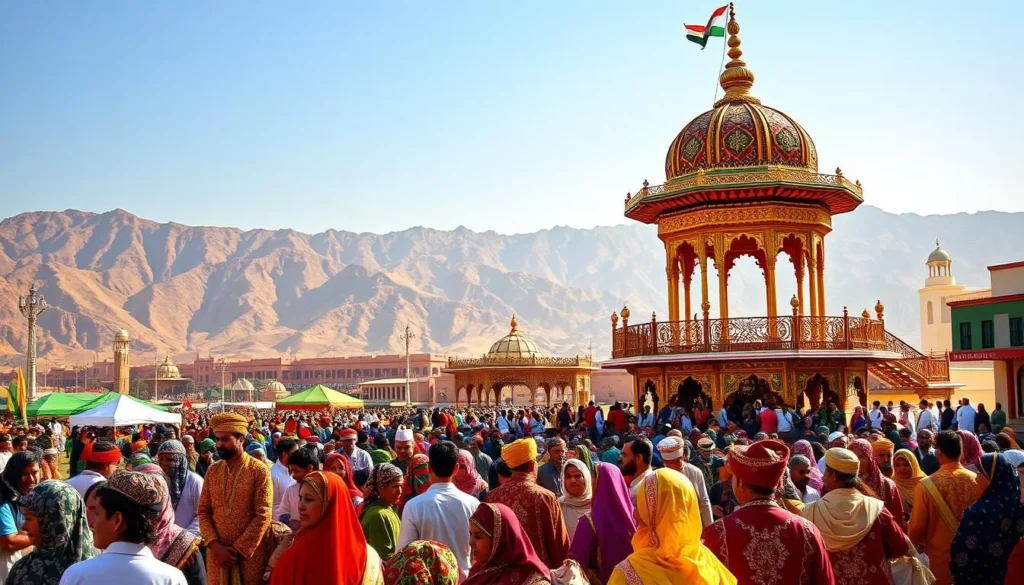
Why Festivals Matter in Omani Culture
Festivals in Oman serve as vital cultural touchpoints, preserving and celebrating the country’s rich heritage and distinctive identity. They create a bridge between Oman’s storied past and its progressive present, showcasing how traditions remain relevant in modern times. By understanding the significance of these festivals, you can gain deeper insight into Omani values, including community solidarity, generosity, and respect for history.
Best Times of Year for Festival Experiences
The best time to experience Oman’s festival scene is between November and February, when the weather is pleasant and several major celebrations take place. Summer months (June-August) offer unique experiences like the Salalah Tourism Festival, though temperatures in most of the country can be extremely hot. It’s also worth noting that religious festivals follow the Islamic lunar calendar, so their dates shift each year, requiring visitors to check current schedules when planning trips.
Religious Festivals in Muscat, Oman
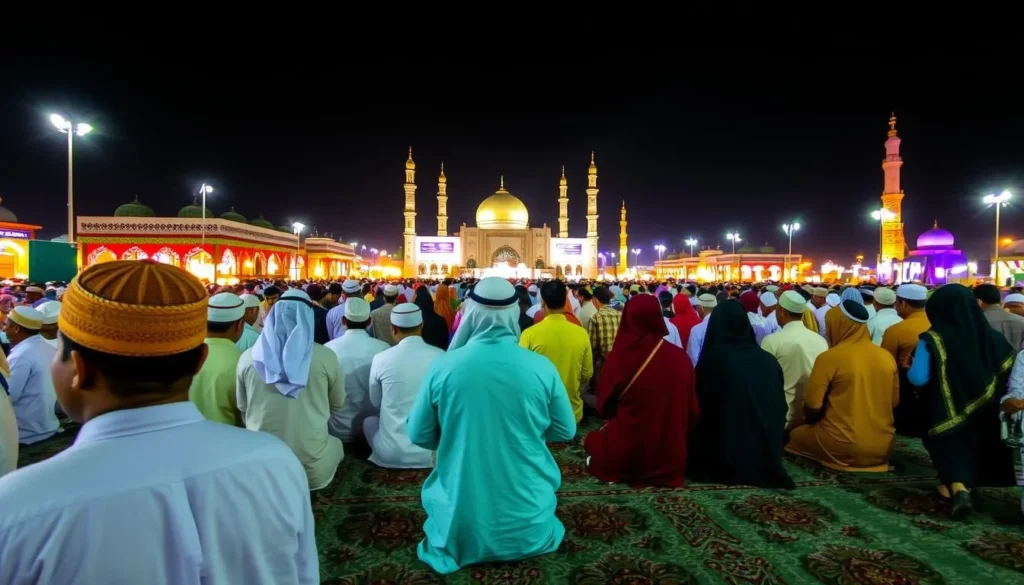
Visitors to Muscat can experience the rich cultural heritage of Oman through its religious festivals. These events are an integral part of Omani culture and offer a unique glimpse into the city’s spiritual traditions.
Eid al-Fitr: Celebrating the End of Ramadan
Eid al-Fitr is one of the most important religious feasts celebrated by Muslims worldwide. It marks the end of Ramadan, the Islamic holy month of fasting. For three full days, Omanis gather with their families to celebrate this joyous occasion.
On the first day of Eid al-Fitr, people gather in mosques to perform the Eid prayer. Afterwards, the celebration begins as people show off new clothes, prepare special dishes to share with their loved ones, and exchange gifts.
Eid al-Adha: The Festival of Sacrifice
Eid al-Adha, also known as the “Sacrifice Feast,” is the second major Muslim holiday celebrated in Oman each year. It lasts for four days and commemorates Prophet Ibrahim’s willingness to sacrifice his son.
During Eid al-Adha, many Omani families sacrifice animals and distribute the meat among family, neighbors, and those in need, embodying the spirit of charity central to this festival.
Muharram Observances in Muscat
Muharram holds significance for both Sunni and Shia communities in Oman, though the Shia population commemorates it with greater intensity. Many Omanis fast on the 9th and 10th days of Muharram, with special prayers taking place at mosques across Muscat.
These religious festivals provide visitors with insight into the spiritual dimensions of Omani culture and the central role that faith plays in shaping community life and traditions.
Muscat, Oman: Top Festivals to Check Out When Visiting
Muscat, Oman’s festivals are a reflection of the city’s rich heritage and cultural diversity. The city hosts a variety of events throughout the year, showcasing its traditions, arts, and entertainment.
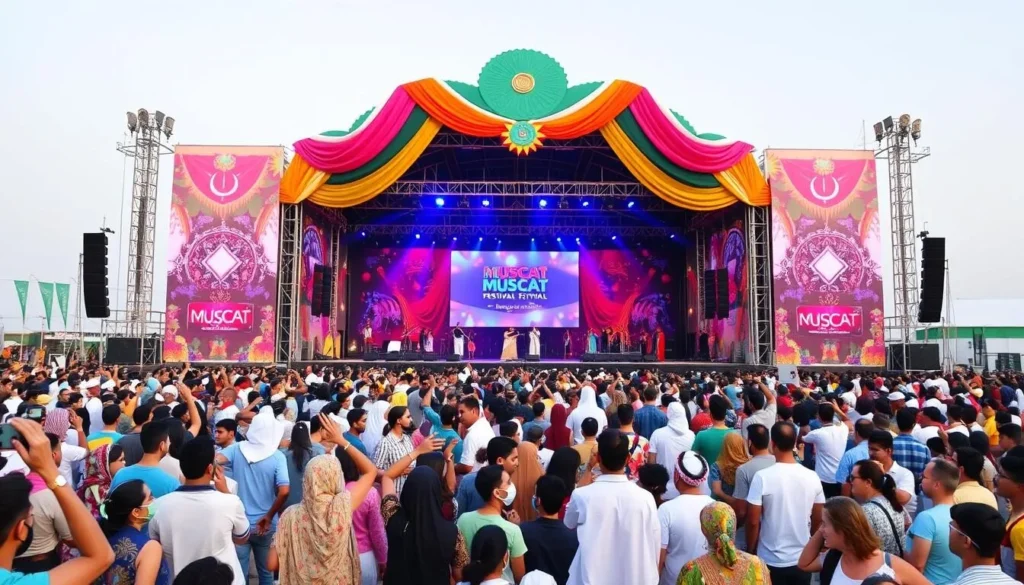
A Month-Long Cultural Extravaganza
The Muscat Festival, held from January 15th to February 13th, is a highlight of the city’s cultural calendar. It’s a month-long celebration that includes a wide range of activities, from cultural performances to entertainment shows.
What to See and Do
During the Muscat Festival, you can explore heritage villages that recreate traditional Omani life. These villages offer demonstrations of ancient crafts and interactive cultural experiences, giving you a glimpse into the country’s rich heritage.
The festival also features amazing firework displays and laser shows, adding to the excitement and spectacle of the event. You can enjoy various performances, including traditional Omani dances and music.
Food and Shopping Highlights
The festival’s food section offers a culinary journey through Oman, with stalls serving everything from street food favorites to regional specialties. You can also explore the markets filled with handcrafted souvenirs, traditional Omani textiles, and artisanal products.
Arab Theatre Festival
The Arab Theatre Festival brings together nearly 500 theatre artists from across the Arab world. This week-long celebration includes performances, creative conferences, and handicraft exhibitions, showcasing both traditional and contemporary theatrical expressions.
Muscat International Book Fair
The Muscat International Book Fair is one of the most prominent literary events in Oman, attracting publishers, authors, and book lovers worldwide. The fair features thousands of titles in multiple languages and genres, along with author signings, literary discussions, and cultural presentations.
While not in Muscat itself, the Salalah Tourism Festival offers a complementary experience during the summer monsoon season. Visitors can enjoy the region’s unique green landscape alongside cultural performances, making it a unique event in Oman’s cultural calendar.
National Celebrations and Sporting Events
Experience the vibrant spirit of Oman through its national celebrations and sporting events. Oman’s national calendar is filled with festivities that reflect its rich history and cultural heritage.
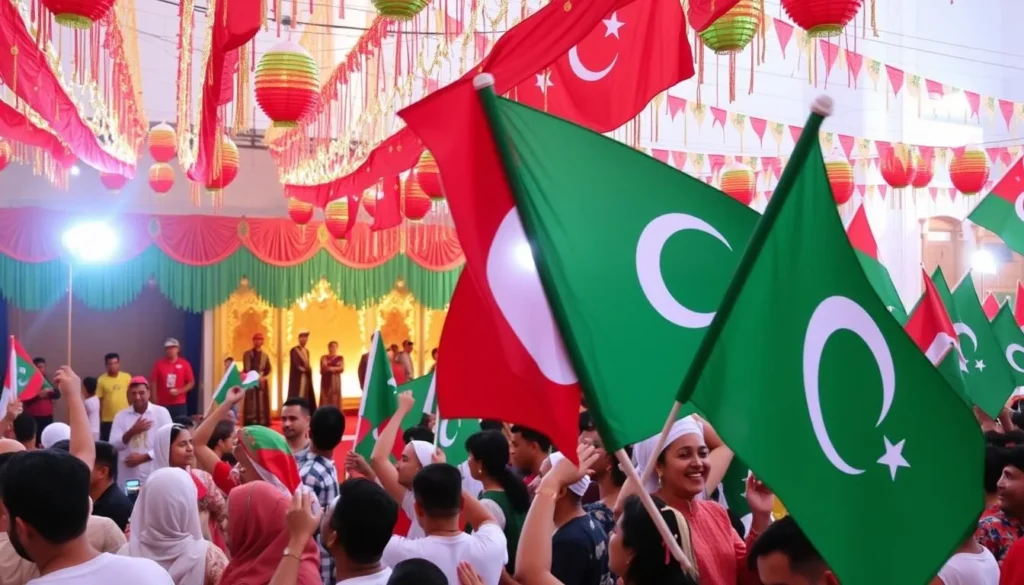
Oman National Day: November Festivities
Oman National Day, celebrated on November 18th, is a significant public holiday that commemorates Oman’s independence from Portuguese rule in 1650. The day is marked with grand festivities, including parades, fireworks, camel races, and an equestrian show.
The national day celebrations transform Muscat and other cities into a sea of red, white, and green as citizens celebrate their independence and honor Sultan Qaboos bin Said’s legacy.
Renaissance Day: Celebrating Oman’s Modern Era
Renaissance Day, observed on July 23rd, marks the anniversary of Sultan Qaboos bin Said’s accession to power in 1970, signaling the beginning of Oman’s modernization and development. This national holiday features official ceremonies, cultural performances, and public speeches highlighting Oman’s achievements.
Sultan Camel Race Cup: Traditional Sport Spectacle
The Sultan Camel Race Cup is an annual event that promotes one of Oman’s traditional sports. Camels compete at speeds of up to 64 kilometers per hour on specially designed tracks, showcasing their historical importance in Omani culture. The event is accompanied by traditional music, dance performances, and displays of Bedouin heritage.
Both national celebrations and sporting events like the Sultan Camel Race Cup offer photographers exceptional opportunities to capture the color, movement, and emotion of Omani cultural expressions. These events highlight how Oman balances honoring its traditional past while embracing its modern identity under the leadership established by Sultan Qaboos bin Said.
Tips for Visitors Attending Festivals in Oman
To make the most of your festival experience in Oman, it’s crucial to understand and respect the cultural norms. When attending events in Oman, dressing modestly is essential; opt for lightweight, loose-fitting garments that cover your shoulders, knees, and chest.
Being mindful of local customs is also vital. For instance, during Muharram, it’s best to avoid overly festive attire out of respect for the solemn occasion. Additionally, always ask permission before photographing individuals, particularly women, and respect any restrictions at religious sites or during ceremonies.
- Plan your accommodation well in advance, as hotels in Muscat and other festival regions can book up quickly.
- Learn basic Arabic greetings to enhance your experience and show respect for the local culture.
- Be aware of prayer times when scheduling your festival visits, as some events may pause during these times.
By being respectful and prepared, you can fully enjoy the rich heritage and traditions that Oman’s festivals have to offer. Whether it’s the Muscat Festival or other national celebrations, your experience will be enriched by understanding and embracing the local culture.
—
The above is subject to change.
Check back often to TRAVEL.COM for the latest travel tips and deals.
